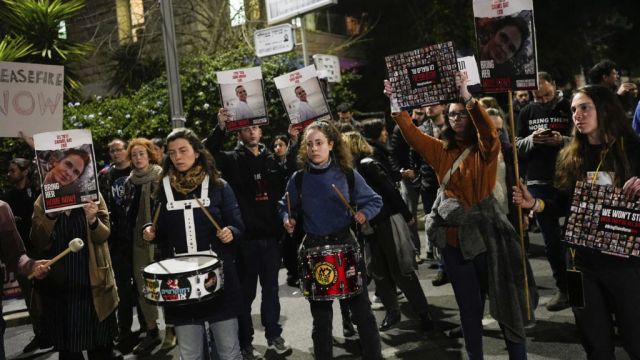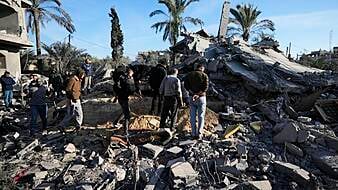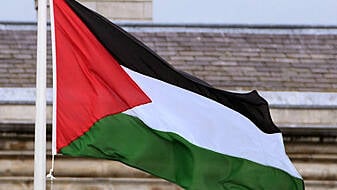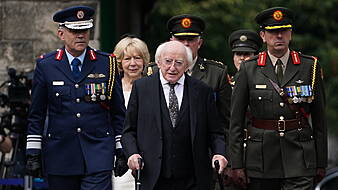Saudi Arabia’s foreign minister has said the kingdom will not normalise relations with Israel or contribute to Gaza’s reconstruction without a credible pathway to a Palestinian state.
Prince Faisal bin Farhan’s remarks in an interview with CNN broadcast on Sunday were some of the most direct yet to come from Saudi officials on the Gaza conflict.
It puts the kingdom at odds with Israeli prime minister Benjamin Netanyahu, who has rejected Palestinian statehood and described plans for open-ended military control over Gaza.
The dispute over Gaza’s future – coming as the war still rages with no end in sight – pits the United States and its Arab allies against Israel and poses a major obstacle to any plans for post-war governance or reconstruction in Gaza.
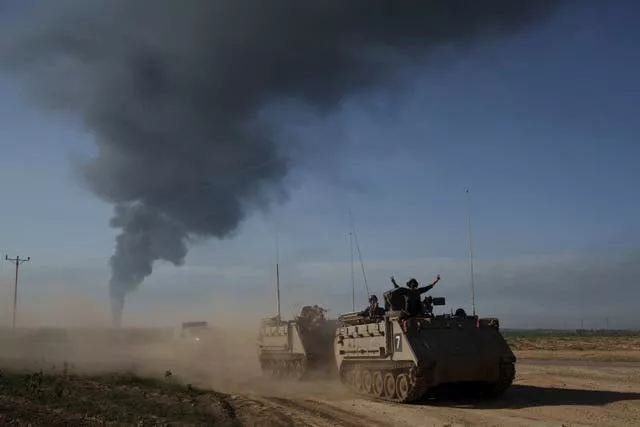
Before the October 7th Hamas attack that triggered the war, the US had been trying to broker a landmark agreement in which Saudi Arabia would normalise relations with Israel in exchange for US security guarantees, aid in establishing a civilian nuclear programme in the kingdom, and progress toward resolving the Israeli-Palestinian conflict.
In September, Mr Netanyahu had said Israel was “at the cusp” of such a deal, which he said would transform the Middle East.
In the interview with CNN’s Fareed Zakaria GPS, the host asked the Saudi foreign minister: “Are you saying unequivocally that if there is not a credible and irreversible path to a Palestinian state, there will not be normalisation of relations between Saudi Arabia and Israel?”
Prince Faisal replied: “That’s the only way we’re going to get a benefit. So, yes.”
Earlier in the interview, when asked if oil-rich Saudi Arabia would finance reconstruction in Gaza – where Israel’s air and ground offensive has devastated vast swathes of the impoverished territory – Prince Faisal gave a similar answer.

“As long as we’re able to find a pathway to a solution, a resolution, a pathway that means that we’re not going to be here again in a year or two, then we can talk about anything,” he said.
“But if we are just resetting to the status quo before October 7, in a way that sets us up for another round of this, as we have seen in the past, we’re not interested in that conversation.”
The Palestinians seek a state that would include Gaza, the Israeli-occupied West Bank and annexed east Jerusalem, territories Israel captured in the 1967 Middle East war.
Israel views all of Jerusalem as its capital and the West Bank as the historical and biblical heartland of the Jewish people.
It has built scores of settlements across both territories that are home to hundreds of thousands of Jewish settlers. The last of several rounds of peace talks broke down nearly 15 years ago.
The current war between Israel and Hamas, the fifth and by far deadliest, began when Palestinian militants broke through Israel’s defences and rampaged through several nearby communities, killing some 1,200 people, mostly civilians, taking around 250 people hostage and shattering Israelis’ sense of security.
The war in Gaza: 100 days in 100 photos
The crisis in📍#Gaza is a man-made disaster compounded by dehumanizing language and the use of food, water and fuel as instruments of war.
There is endless chaos and growing despair.https://t.co/2GPrcGYkFa pic.twitter.com/2s0tso1rGe— UNRWA (@UNRWA) January 17, 2024
Israel’s offensive has killed at least 25,105 Palestinians in Gaza and wounded more than 60,000, according to the health ministry in the Hamas-ruled territory. The ministry does not distinguish between civilians and combatants but says around two-thirds of those killed were women and children.
The Israeli military says it has killed around 9,000 militants, without providing evidence, and blames the high civilian death toll on Hamas because it positions fighters, tunnels and other militant infrastructure in dense residential areas.
Some 85 per cent of Gaza’s population of 2.3 million have fled their homes, seeking elusive shelter in the south as Israel continues to strike all parts of the besieged enclave.
UN officials say one in four people in Gaza are starving as the ongoing fighting and Israeli restrictions hinder the delivery of humanitarian aid.

The war has also stoked tensions across the region, with Iran-backed groups in Lebanon, Syria, Iraq and Yemen attacking Israeli and US targets as the risk of a wider conflict grows.
Mr Netanyahu has vowed to continue the offensive until “complete victory” over Hamas and to return all of the remaining hostages after more than 100 were released in a cease-fire deal in November in exchange for scores of Palestinians imprisoned by Israel.
But Israelis are increasingly divided on the question of whether that outcome is possible.
Hamas is believed to be holding the hostages in tunnels deep underground and using them as shields for its top leaders.
Israel has only successfully rescued one hostage, while Hamas says several have been killed in Israeli air strikes or during failed rescue operations.
At the #WEF24, I spoke with UK Foreign Secretary @David_Cameron to discuss efforts to support Ukraine and promote a more secure, stable, and peaceful future for the Middle East region. pic.twitter.com/mzrW0GkQL4
— Secretary Antony Blinken (@SecBlinken) January 17, 2024
On Monday, dozens of family members of the hostages stormed into a finance committee meeting in Israel’s Parliament, yelling: “You won’t sit here while they are dying there!”
Some had to be physically restrained as they shouted at the lawmakers, and at least one person was escorted out.
Moshe Gafni, the chair of the committee, said he understood their pain and called for a break from the meeting, which was in the process of approving budgets for communities near Gaza.
Families of the hostages, as well as other protesters, have set up a tent camp outside Mr Netanyahu’s residence in Jerusalem and vowed to remain until a deal is reached with Hamas to bring the rest of the hostages home. Other protests have called for new elections.
Hamas has said it will only free more captives in exchange for an end to the war and the release of thousands of Palestinian prisoners. Netanyahu has ruled out such an agreement and says military pressure is key to securing the release of more hostages.
Mr Netanyahu, whose popularity has plummeted since October 7th, faces pressure from the US – Israel’s top ally – to shift to more precise military operations, do more to facilitate humanitarian aid and embrace post-war plans with broad support across the region.
But Mr Netanyahu’s governing coalition is beholden to far-right parties that want to step up the offensive, encourage the “voluntary” emigration of hundreds of thousands of Palestinians from Gaza, and re-establish Jewish settlements there.
